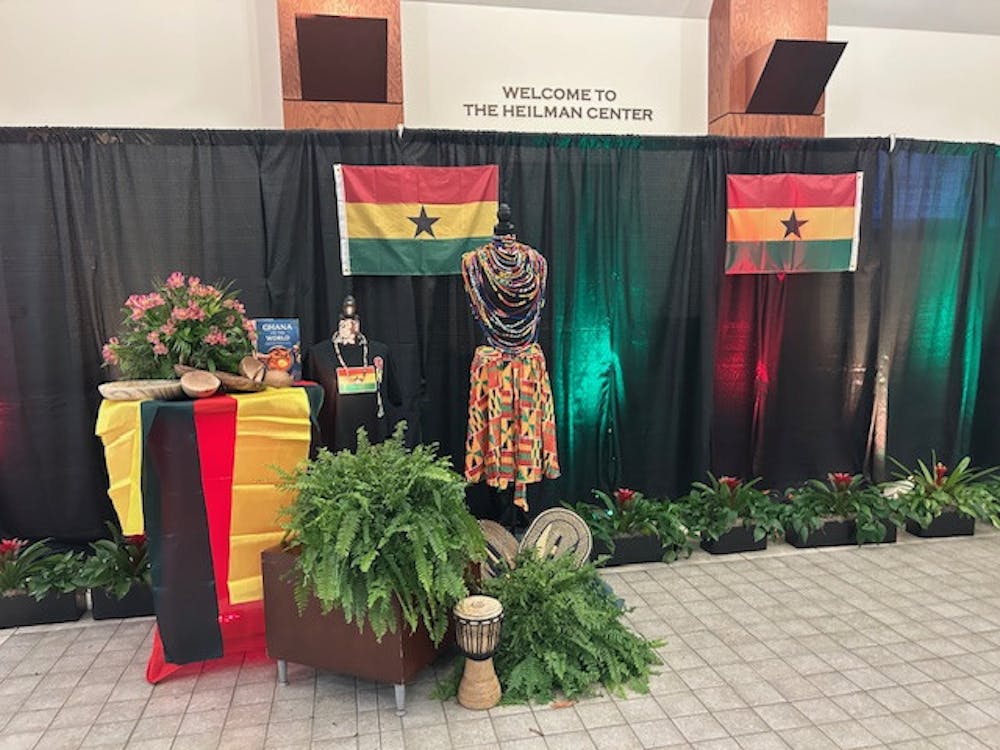Amy Treonis, an associate professor at the University of Richmond, will be spending five months teaching and researching in Nepal after winning a Fulbright Scholar award.
Treonis, who has taught at Richmond since fall 2005 and received tenure last year, will teach at a university in Katmandu while also researching the disparities between conventional agricultural soil and soil that Non-governmental Organizations and the Nepalese government have helped to improve.
"I've been here for 20 years; we've never had anybody in the biology department get a Fulbright as far as I can remember," said Gary Radice, the chairman of the biology department.
It is customary for a professor to take a sabbatical in the second year following their tenure decision, but the Fulbright allows Treonis to take off the entire year to focus on teaching and research, Radice said.
After receiving her tenure, Treonis said, "Being one of those people who can't sit still for a minute, I'm like 'OK, that's done. What's my next challenge?'"
Treonis realized that she saw herself continuing to teach, despite her sabbatical.
"I really love teaching, and the whole point of sabbatical is not to teach," she said. "You take time off from your teaching and focus on your scholarship. So I wanted to see if I could somehow put something together for my sabbatical that would allow me to do both those things."
Treonis had heard of the Fulbright program through students who had asked her for letters of recommendation, and she decided to look into it for herself, she said.
After entering into the website's search engine programs in English with microbiology components, she had two options: a country in South America and Nepal, she said.
She said she had been an avid reader of travel, adventure and climbing books that took place in the area, and it had been as if she had already been to Nepal through the eyes of these books.
Originally, she was looking into studying nematodes in the Himalayas, similar to her current nematode research on campus, but she said she had changed her mind.
"I started to do more research, and I realized that this is one of the poorest countries in the world, and they have some serious critical needs in addressing agriculture issues and basically providing a future where they can feed their people sustainably," she said.
Enjoy what you're reading?
Signup for our newsletter
Through her planned research, she hopes to look at how to make the soil the healthiest to promote the most growth for the people of Nepal.
"I'm looking at things that live in the soil and what their communities are like and whether they are healthy, which I think will be a better indicator of long-term soil improvement and long-term soil health than just measuring how much wheat did I get this year compared to last year," she said.
Treonis is unsure as to what exactly she will be teaching in Nepal, but she thinks she will most likely teach a course in undergraduate microbiology and also a more specialized course in soil ecology. She also hopes to include Nepalese students in her research, she said.
She looks forward to working with students who are more profoundly affected by microbiology in their everyday lives, she said. Treonis joked: "It's not going to be like 'Oh my God, I got the flu the night before Ring Dance.' It's going to be like 'Oh, my uncle got Japanese encephalitis, and he died.'"
Radice emphasized the importance of Treonis' time in Nepal. "It's good for her personally because it's good for her career," he said. "It's good for us because she'll come back with new skills, new abilities, new incites into teaching, new incites into research. So even though we are going to miss her for a year, it's going to be great when she comes back."
Treonis said she was prepared for a chaotic and rocky time in Nepal, citing common strikes and power outages, but she looked forward to bringing back what she learned to a new Sophomore Scholars in Residence program that she and sociology professor Elizabeth Ransom will start after Treonis' year-long sabbatical. Treonis also hopes to bring back soil samples to continue her research with Richmond students next spring, she said.
Junior Sarah Thomas, who started doing research with Treonis this semester and who is currently in Treonis' microbiology class, said she felt she learned so much through Treonis' teaching style.
"She really seems interested in making sure that everyone working in her lab is actually learning while they are doing it and making the most out of that experience," Thomas said.
Treonis looks forward to representing both the United States of America and the University of Richmond during her time abroad.
"There is so much in the news about what America is or isn't doing in other countries, you know," she said. "And to know that there are hundreds of American scholars every year that go out around the world to be Fulbrighters at academic institutions and represent America in a very positive way, I think that's a story that, you know, we don't really know about. I think that's really important."
Contact staff writer Maria Rajtik at maria.rajtik@richmond.edu
Support independent student media
You can make a tax-deductible donation by clicking the button below, which takes you to our secure PayPal account. The page is set up to receive contributions in whatever amount you designate. We look forward to using the money we raise to further our mission of providing honest and accurate information to students, faculty, staff, alumni and others in the general public.
Donate Now


